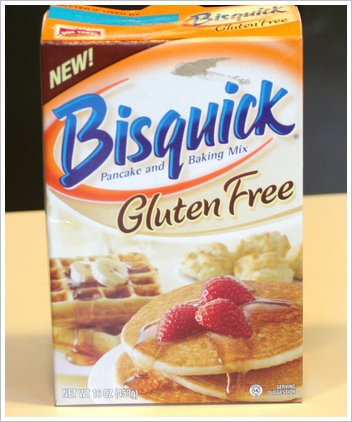In High School, I suffered from a lot of health problems, which followed me into college. My list of ailments spanned the spectrum: sinus infections, severe stomach cramping, the not-so-nice stuff coming out of the bottom end, and I seemed to catch just about anything that so much as sniffed in my direction. Doctors ran countless tests, but they never gave me answers. It all came to a head when a doctor gave me a "prescription" to see a psychiatrist; they thought my sicknesses were self-induced or manifestations of hypochondria. I was livid that their incompetency and inability to find answers was somehow my "mind's" fault. I must have been imagining things if they couldn't find anything wrong. At that moment, I extended my figurative middle finger to the medical profession.
Unfortunately, I had to keep seeing doctors. Again and again and again. (As a relevant side note, let me just say how much I hate the doctor's office. I find absolutely no pleasure in visiting a giant petri dish, yet doctors thought my psyche invented my pain out of some subconscious desire to spend time with them. Right.) Eventually, my digestive system became so sensitive that eating plain rice gave me severe heart burn. I felt bloated, heavy, lethargic, and nauseated every time I ate. In fact, I looked puffy. Nothing agreed with me. I dreaded going out to eat with friends. I avoided going anywhere far from a bathroom. My digestive system was controlling my life. One day, I ended up in a public bathroom at my college, crippled by the most intense abdominal pain I had felt, and I had felt a lot of abdominal pain.
I did what any smart college kid would do: I called mommy. The 45 minute commute to my college took my mom less than 30 minutes. When she arrived, she helped me into her car and drove me over to the ER, a very quick trek from the college. The doctors ran tests. Boom. An answer fell from the sky: gallstones. The doctors were curious, "What? How can this be? You're young, thin, and really in shape. Gallstones happen to people who are older or over weight. Not you." What factor had all of my doctors neglected to consider? BOTH of my parents had their gallbladders removed; in fact, my mom's went bad while she was pregnant with me, but she had to wait until I was born before she could have her gallbladder removed. Guess what? Gallbladder problems are hereditary. Thank you, doctors, for not considering my family history, a pretty important component in treating a patient.
I asked, "What do I do?" Do you want to know what the doctor should have said or what the doctor actually said?
Well, I'll tell you what he actually said, which will forever remain imprinted on my memory: "Don't worry about it right now. Wait until you're on your honeymoon and hovered over the toilet in excruciating pain, then you should have it removed." Sound medical advice.
I sought a second opinion from a surgeon. Within two weeks, I was having an organ removed. After the operation, my surgeon said, "Your gall bladder was so infected and inflamed that it took us 30 minutes more to complete the procedure." Apparently, I was really sick. Go figure. I probably should have seen that psychiatrist, just to deal with the emotional turmoil my doctors made me endure.
After I recovered from the surgery, I was feeling much better. Then, within two years, I needed an appendectomy. The bloating, fatigue, and lethargy was back.
It was time to rely a little less on the medical profession and a little more on my intuition. I started researching how my diet could be affecting my health. At the time, gluten-free was a shadow past the horizon, yet I found the research. All of the symptoms associated with gluten intolerance were my symptoms. I decided to remove gluten from my diet. Presto. The bloating and heaviness went away. My sinus problems abated.
Four years later, I'm learning a lot about the gluten-free lifestyle and making sure not to lose important nutrients by going gluten-free. A lot of our gluten-free products are missing soluble fiber and other beneficial attributes, so you have to be sure to find ways of including these things into your diet.
On a final note, I must add that going gluten-free is not the only step in this long process for me. I need to reduce my sugar intake (a serious battle for a sweet-a-holic like me) and increase my water intake (a serious battle for an on-the-go teacher who has to schedule times to pee.) Here are the lessons I've learned:
- Appreciate doctors for their medical degrees and expertise, but remember that, although they know the human body very well because of their years of study, they do not know your body as well as you do. Listen to your gut (sometimes quite literally), and seek as many opinions as you need to until you find a doctor who understands and believes in you.
- Whoever said "you are what you eat" is right. Diet has everything to do with how you feel. If you eat sludge, then you feel like sludge.
- Do not allow anyone to make you feel like less of a person, for any reason.
- You can live without a lot of your organs, or at least without part of each one. It's amazing how the body regenerates...in a creepy sort of way.





